There is often a lot of confusion around whether donkeys can reproduce. Donkeys usually get lumped in with horses and mules because of their physical similarities. As a result, people are justifiably left wondering whether donkeys can have babies.
Donkeys do reproduce. They just need more time than you’d think. They have low reproduction rates, but they can have babies. It’s mules, a mixture of horse and donkey, that can’t reproduce. Visit any farm with donkeys on it, and eventually, you’ll see a baby donkey or two running around.
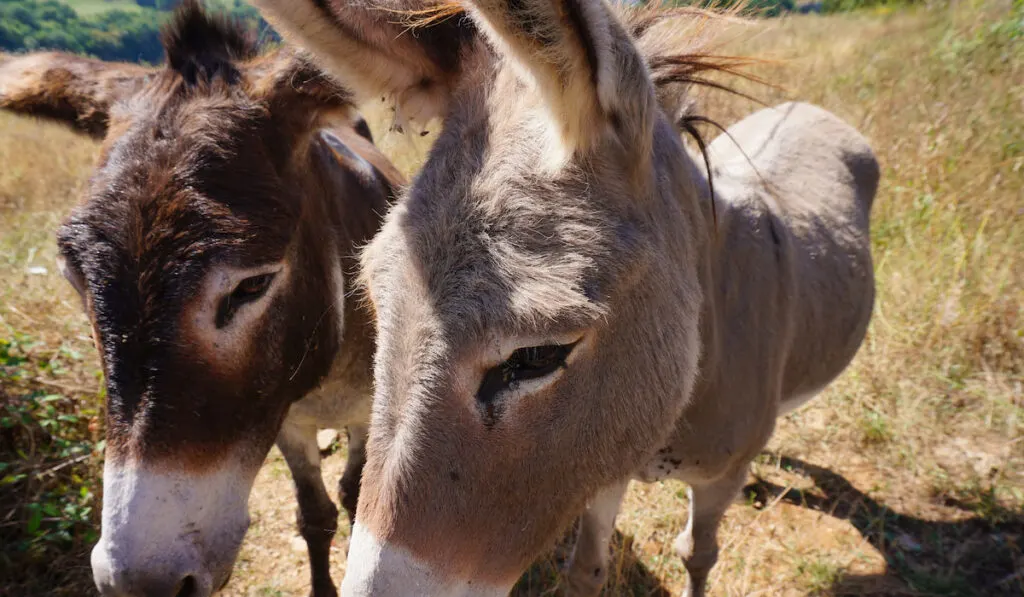
Donkeys, like dogs, and other animals, can even reproduce with similar species. When a donkey mates with a horse, together they create a mule. Donkeys can mate with zebras and ponies as well to make unique animals.
If you’re wondering about donkeys and whether they can reproduce, here is some helpful information on their gestation period, what happens when they mate with donkeys and other animals, and typical reproduction rates.
Table of Contents
When Donkeys Mate with Other Donkeys
Donkeys mate like several other animals in the animal kingdom do. All you need is a willing male and a willing female, and they’ll know what to do. The male donkey positions himself behind the female donkey and raises up on his hind legs to seal the deal.
The common myth that donkeys can’t reproduce is just that, a myth. However, when partnered with certain other species, donkeys join forces to create animals that cannot reproduce.
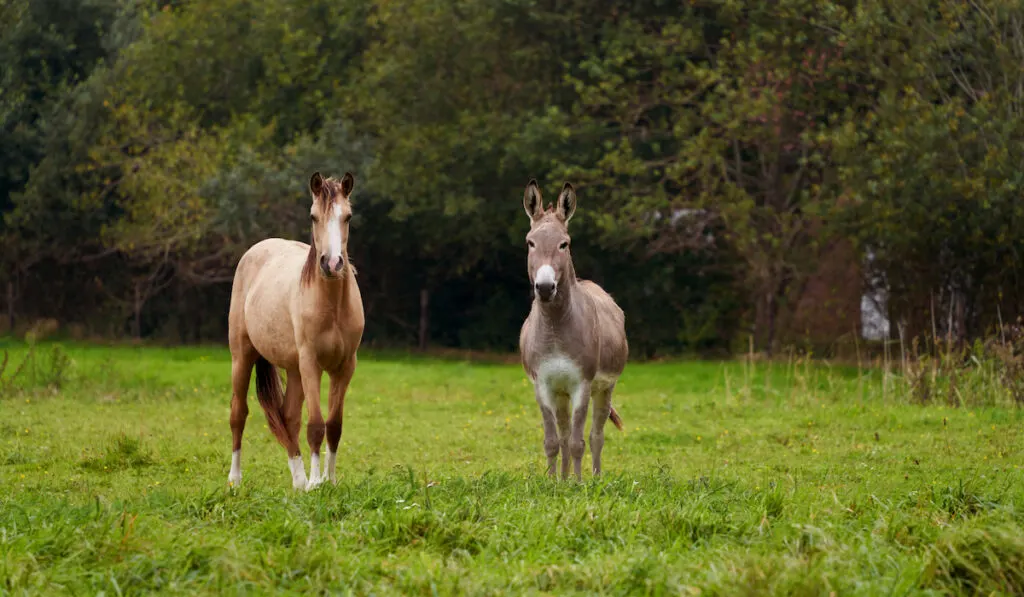
When Donkeys Mate with Horses
A male donkey can mate with a female horse to make a mule. Mules have been bred for hundreds of years. They’re great for use as pack animals. Owners get a good mix of strength and stamina (from the donkey), as well as size and speed (from the horse).
Mules generally have a calmer temperament than the more spirited horse, but they have more pep in their step compared to donkeys.
Mules are born with all of the sex organs required to reproduce, but for whatever reason, nature decided they would be born infertile.
They will have the instinct to mate with other mules, donkeys, horses, and other animals, but they can’t produce offspring.
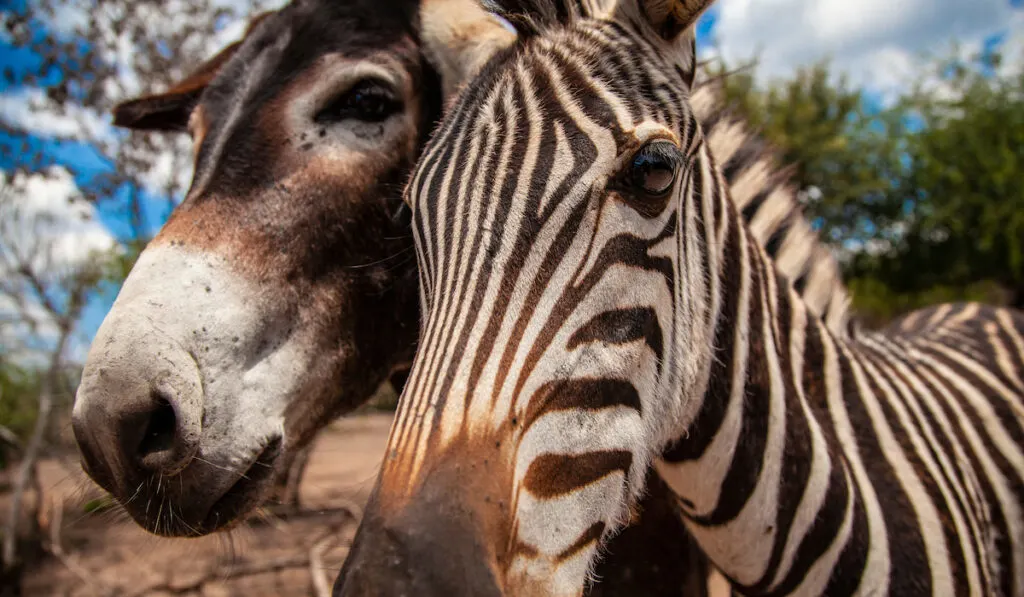
When Donkeys Mate with Zebras
Crossbreeds are becoming more popular in recent years. People are always trying out new things when it comes to breeding to bring in favorable characteristics from one animal and join it to the advantages of another.
Just look at the explosion in new dog breeds. They’ve yielded us hypoallergenic dogs, smart dogs that are family-friendly, and dogs of different sizes suitable for people in all different situations.
The same goes for donkeys, horses, and other similar animals. Zeekonks are the result of zebras and donkeys mating. These animals, though, are also born sterile, just like mules. It’s a one-time thing due to the failure of certain un-matching chromosomes.
Ponies & Hinnies
Donkeys can mate with ponies. These are usually simply referred to as mules. When a donkey mates with a stallion, they are called hinnies.
The only difference between a standard mule and a hinny or a pony mix is that size and coloring will vary depending on how much of which animal the offspring picks up during its time in the mother’s womb.
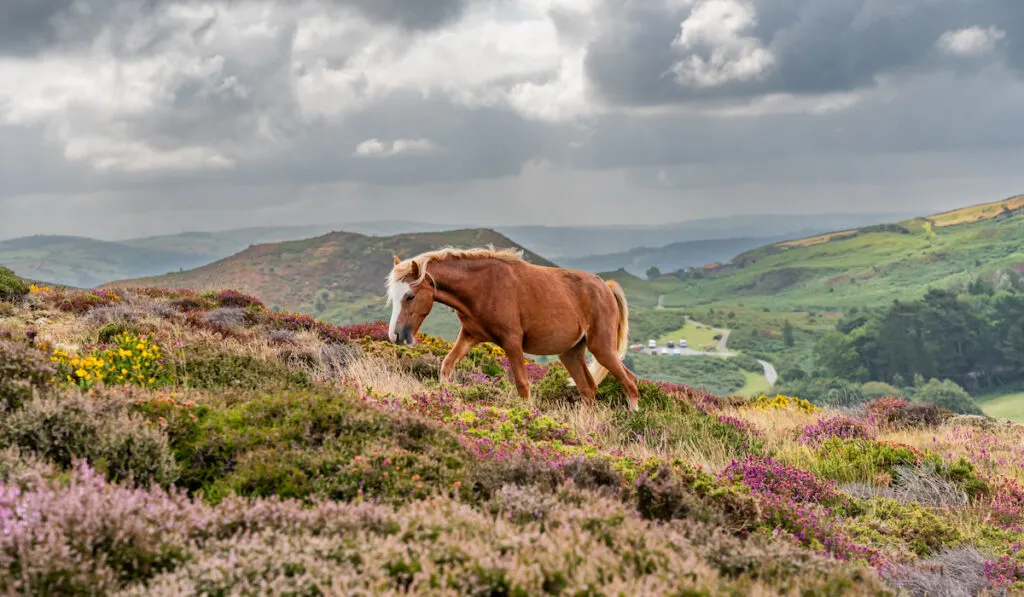
How Long Is the Gestation Period for Donkeys?
Female donkeys carry a baby donkey for anywhere between 11 and 14 months. 12 months is usually the sweet spot for gestation. However, the range of three months makes donkeys unique. Most other animals give birth within a much narrower timeframe.
For example, horses typically give birth between 335-345 days, making it much easier to make preparations and know when the foal is coming.
With donkeys, it’s a bit harder to know when the time comes, so you have to be ready for things when they decide to happen.
When Is a Donkey Too Old to Breed?
Donkeys share some similarities to humans in terms of reproduction when it comes to differences between males and females.
A male donkey (commonly referred to as a jack), for instance, can reproduce well into his 40s. Female donkeys, or jennets, on the other hand, can only reproduce into their early 20s. Once they get into their 20s, they will start running into fertility issues more frequently. Mini donkeys have an even shorter time frame because their lifespans are shorter.
Twenty years is still a long time considering donkeys can start reproducing reliably once they are around two years old. There are common reports of donkeys as young as nine months carrying a baby donkey to term.
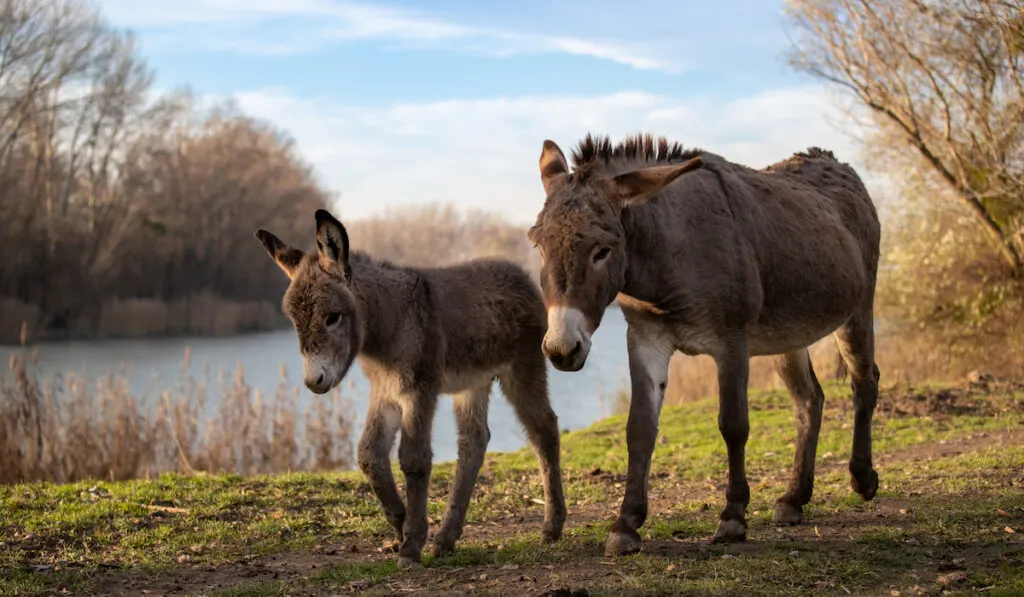
How Many Babies Can a Donkey Have?
If you’re raising donkeys, or you’re looking to buy a fully-grown donkey that has already had babies, you may be concerned with how many babies they can successfully have without endangering the mother or the baby donkey.
While there is no set limit on how many babies each jennet can have, all you have to do is take into account when they become of age and how long they can healthily reproduce and do the math.
Sometimes, donkeys give birth to twin foals, which can increase their total number of offspring. However, the survival rate of twin foals is very low. It’s very rare to see two adult twin donkeys.
Final Thoughts
Raising donkeys is a lot of fun, and they’re usually used as work animals if on a ranch or a working farm.
Taking care of your donkeys and putting them in the right conditions makes getting young foals every year a good possibility.
If you’re planning on breeding your donkey with a horse, zebra, or pony, just know that you won’t be seeing any grandchildren anytime soon.
As usual, consult a vet if you have any health concerns related to your donkey’s reproduction and do what you can to keep them healthy and comfortable.
Done right, your donkeys and their foals will live full lives and you’ll bond with them to make years of lasting memories wherever you are.
Resources
- https://www.thedonkeysanctuary.org.uk/what-we-do/knowledge-and-advice/about-donkeys/mules-and-hinnies
- http://livestocktrail.illinois.edu/horsenet/paperDisplay.cfm?ContentID=7449

